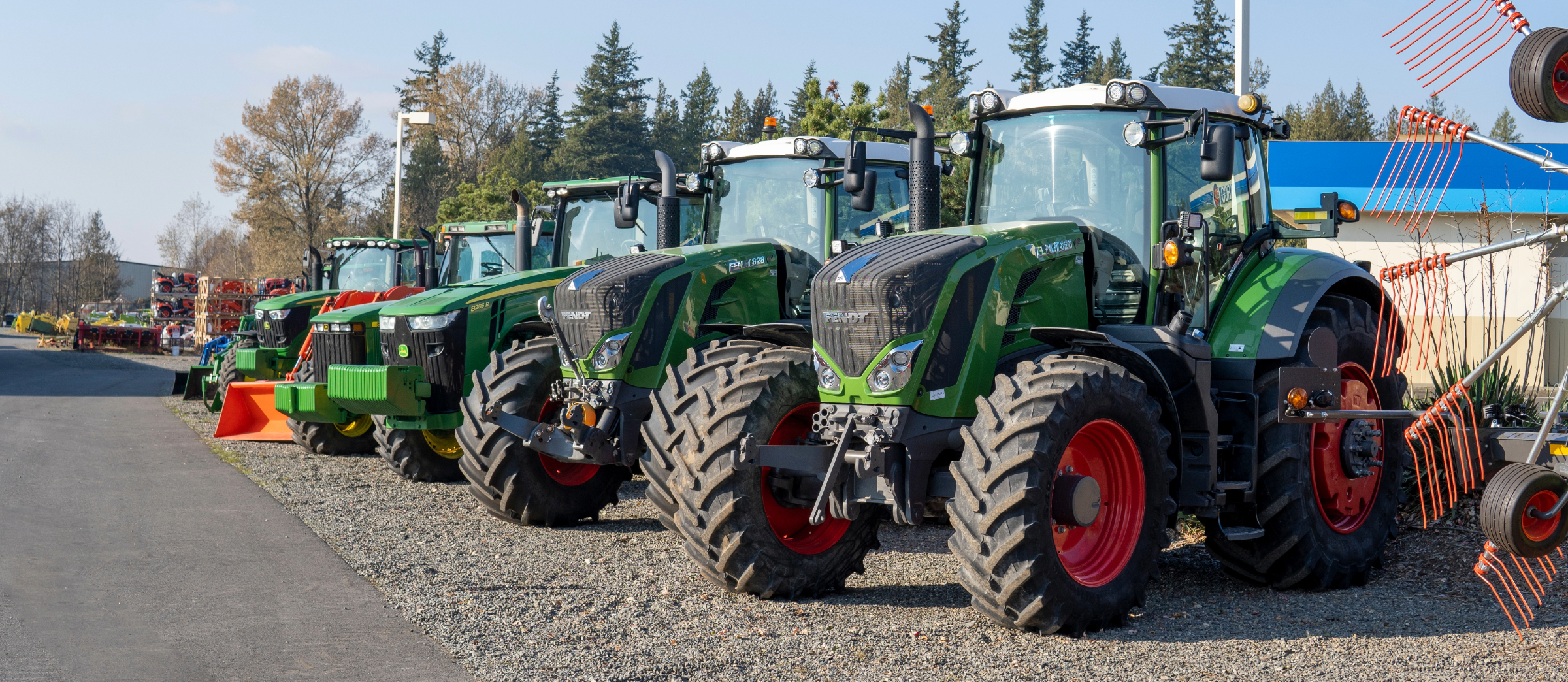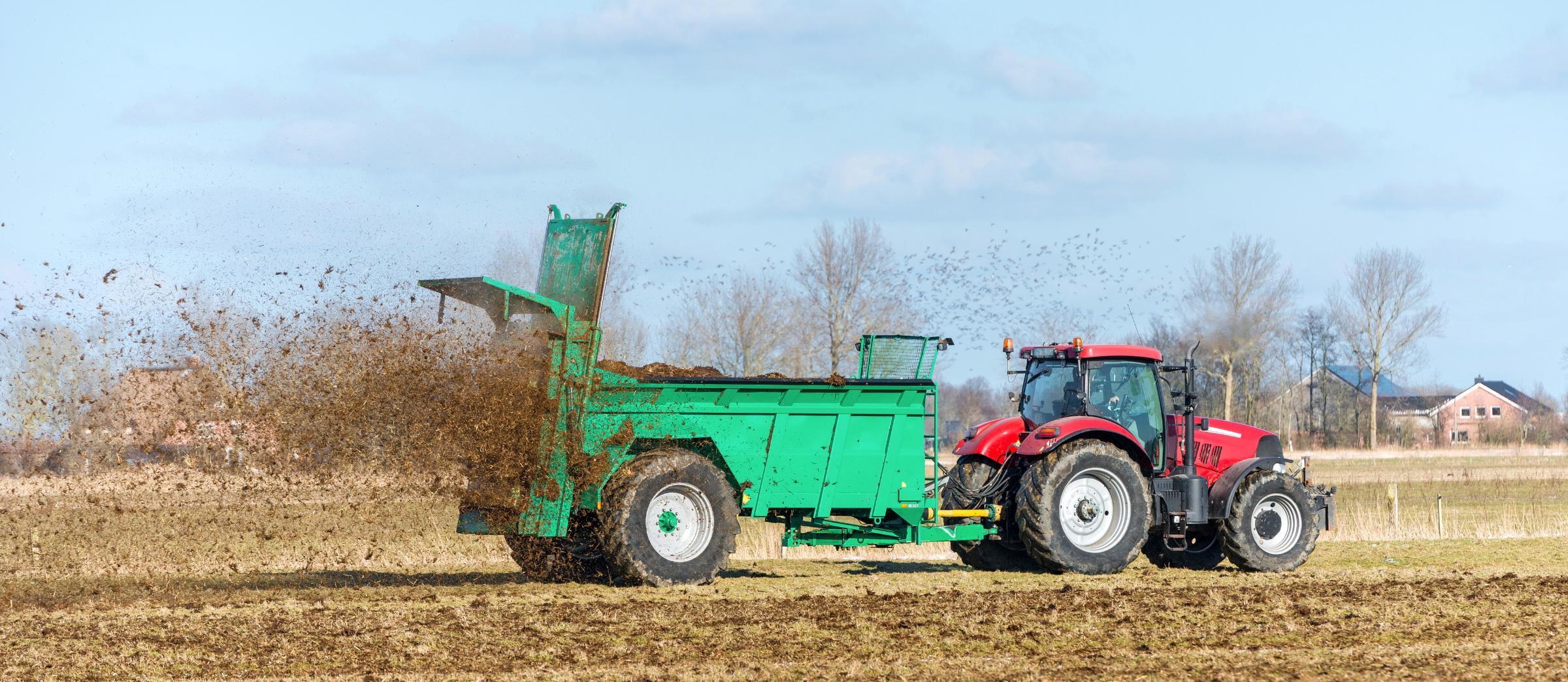Secrets of Successful Farm Managers
Author(s): Kayla Brashears
Published: November 29th, 2023
Shareable PDF
After spending over a decade analyzing a plethora of farm operations, I’ve learned a few things about what makes an operation successful. There isn’t a hidden formula anyone can follow to become successful, but there are best practices that operations can implement to position themselves favorably.
Maintain Their Equipment
One of the most frequent questions I receive as a Farm Management Specialist is “should I buy new equipment, or keep old equipment?” The true answer is – it depends. The difference is old equipment and high repair bills, or new equipment but high depreciation/debt load. Profitable farm managers can take either approach, and there are different philosophies on which is better. The common thread between these is that successful farmers manage and maintain their equipment. They keep the combines blown off to prevent fires, they inspect grain trucks frequently and pull them off the road if there’s problems to prevent accidents. They know when their equipment needs oil changes, they read the parts books and the owner’s manual. They take their equipment in for inspection and keep leased equipment in good condition. Successful farm managers recognize that equipment is the most rapidly depreciating asset they have, and they take reasonable measures to preserve the value of their investment.
Know Their Numbers
This point feels obvious, but many producers do not take the time to learn and understand their financial position. Knowing your numbers begins during the year, with input cost per acre and feed cost per cow. Profitable farmers review billing statements to understand the cost of maintenance, fuel, utilities, insurance, etc. Profitable farmers know how much rising interest rates cost them and are proactive in managing it. Finally, successful farmers are familiar with their year-end numbers. They understand working capital and the impact a new equipment purchase may have on it. They work with trusted professionals to develop their financial numbers if they can’t do it themselves, and also dedicate the time each year to reflect on those numbers in order to improve the next year.
Build a Rewarding Place to Work
Many small farming operations are successful through only the work of the owner. However, many medium to large-size operations will have employees. Quality, hard-working employees are crucial to the success of the farm. Many producers will argue those types of employees are close to impossible to find. However, successful operators flip that mindset and know that to maintain dedicated, skilled employees, they must cultivate an attractive and rewarding work environment. How this is achieved varies, but most likely means provisions such as competitive pay, paid time off and, of course, effective, solicitous leadership.
Know What They Don’t Know
A successful farm manager doesn’t get bogged down by something as trivial as pride. They spend resources to draw on the knowledge of those that know more than them. Depending on the producers (and what they DO know) and the varying operation, this looks different everywhere. They may be involved with an organized peer group, or other agricultural civic organizations. They find a good financial sounding board, a solid banker, a competent agronomist, and handy mechanics. If they have a failed crop or herd, they seek out answers from other people with that specific knowledge. It is possible to go too far on this spectrum and harm decision-making ability by taking in too many opinions. Considering that, it’s important to develop a discerning voice when seeking the knowledge of others. This isn’t something that is easily taught and must be developed over time.
Use Excess Cash Wisely
Profitable producers are strategic in how they manage excess cash flow from good years. Most often, that cash is best used to bolster cash reserves, although it may feel tempting to pay down long-term debt. They also seek to balance those reserves and know when and how to invest back into their operation. When interest rates began to rise, they pursued options to give them a larger return on their money and didn’t let complacency keep their money in the same place. They carefully evaluate when to purchase more breeding livestock or add a second combine. They take the time to understand prepay deals to determine if they make sense for the operation. To summarize, successful farm managers see extra cash in the bank account for what it is – a tool to help them build and create a stronger balance sheet and operation.
Build on Previous Generations
Despite hard work and grift, it can’t be left unsaid that many successful farming operations today are built from tenacity, timing, and a bit of luck from prior generations. The barriers to entry into farming are formidable, and many farmers today would not be farming without the influence of those before them. Successful farmers do not negate that influence by assuming credit. Instead, they reflect and appreciate the dedication of previous generations and seek to protect those prior investments from deteriorating. They recognize that their parents and grandparents may have gained valuable insight from their farming experience, although the world has changed in the past several years. Successful farmers glean and build on that knowledge, adding their own work and experiences to build an operation that continues forward indefinitely.
Recommended Citation Format:
Brashears, K. "Secrets of Successful Farm Managers." Economic and Policy Update (23):11, Department of Agricultural Economics, University of Kentucky, November 29th, 2023.
Author(s) Contact Information:
Kayla Brashears | KFBM Area Extension Specialist | kayla.brashears@uky.edu
Recent Extension Articles
Capital Investment Analysis
Steve Isaacs
Investments in land, machinery, livestock, facilities, the things that will last, and hopefully make money, are long-term decisions with major implications for the business. Analysis of a major purchase can have a lot of moving parts and requires putting pencil to paper or numbers to a spreadsheet. Every investment will be unique… different costs, different outcomes, different net return estimates, different cash flow patterns.
The Economic Value of Applying Broiler Litter in the Fall 2023
Jordan Shockley
Spring application of broiler litter is ideal for maximizing the economic value but faces challenges that include wet soil conditions, lack of time to spread litter near planting, and availability of litter in the spring. Therefore, it is a common practice in Kentucky to apply broiler litter in the fall. While not optimal from an economic, agronomic, or environmental perspective, producers still need to understand the economic value from applying broiler litter in the fall.




